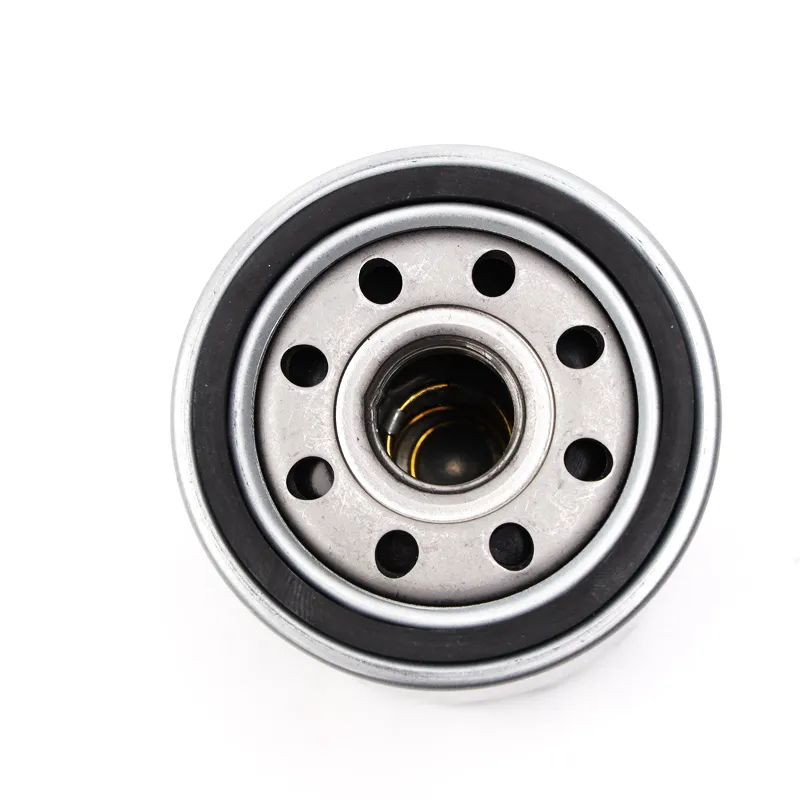dec . 26, 2024 12:26 Back to list
cabin air filter
The Importance of Cabin Air Filters in Vehicle Maintenance
In modern vehicles, cabin air filters play a crucial role in ensuring a comfortable and safe driving experience. These seemingly small components have a significant impact on the air quality within the car, affecting the health of the passengers and the performance of the vehicle's heating and cooling systems. Understanding the importance of cabin air filters is essential for car owners who wish to maintain their vehicles properly.
What is a Cabin Air Filter?
A cabin air filter is designed to trap dust, pollen, mold spores, and other airborne particles from entering the interior of a vehicle. Typically located behind the glove box or under the dashboard, this filter works in conjunction with the vehicle’s heating, ventilation, and air conditioning (HVAC) system. As outside air is drawn into the cabin, the filter cleans it, ensuring that what enters is as free of pollutants as possible.
Benefits of a Cabin Air Filter
1. Improved Air Quality The primary advantage of having a high-quality cabin air filter is the noticeable improvement in the air quality inside the vehicle. Passengers can benefit from cleaner air that is free from allergens, dust, and harmful particles, providing a healthier environment, especially for those with allergies or respiratory conditions.
2. Enhanced Comfort A clean cabin air filter helps maintain optimal temperature levels within the vehicle. When the HVAC system operates efficiently, it can effectively cool or heat the cabin, contributing to a more comfortable ride, especially during extreme weather conditions.
3. Protection for HVAC Systems A clogged or dirty cabin air filter can lead to further maintenance issues within the HVAC system. By allowing for proper airflow, a clean filter helps prevent strain on the system, prolonging its lifespan and reducing the likelihood of costly repairs.
4. Reduced Odors Over time, cabin air filters can become saturated with dirt and contaminants, leading to unpleasant smells inside the vehicle. Regularly replacing the filter can help maintain a fresh and clean scent, enhancing overall driving enjoyment.
Signs That it’s Time to Change Your Cabin Air Filter
cabin air filter

Knowing when to change the cabin air filter is crucial for vehicle maintenance. Several signs can indicate that it’s time for a replacement
- Reduced Airflow If you notice a significant decrease in airflow from the vents, it could be due to a clogged filter. This reduction can lead to inefficient heating and cooling.
- Unpleasant Odors If there are strange or musty smells coming from the air conditioning system, it may be a sign that the filter is saturated and needs replacement.
- Increased Allergies If passengers experience increased allergies or respiratory issues while in the vehicle, it might be due to a dirty filter that is no longer effectively trapping allergens.
- Mileage and Time Most manufacturers recommend replacing the cabin air filter every 15,000 to 30,000 miles or at least once a year, depending on driving conditions. Those living in urban areas or exposed to high pollen counts may need to change the filter more frequently.
DIY Replacement or Professional Service?
Replacing a cabin air filter can often be a straightforward task that many car owners can handle themselves, as it typically involves minimal tools and no mechanical expertise. Most vehicle manuals provide clear instructions on locating and changing the filter. However, for those who prefer professional assistance or are unsure of the process, many automotive service centers offer this replacement as part of routine maintenance.
Conclusion
Cabin air filters are a vital component of vehicle maintenance that should not be overlooked. They contribute significantly to the air quality, comfort, and longevity of the HVAC system within the vehicle. Regularly checking and replacing the cabin air filter can lead to a healthier driving environment and a more pleasant experience for all passengers. As with any maintenance task, being proactive about cabin air filter replacement can save car owners time and money in the long run. Ultimately, a clean cabin air filter is not just about comfort—it’s about fostering a safe and enjoyable driving experience.
-
Toyota Corolla Oil Filter Price & Deals Affordable AC & Air Filters
NewsJun.10,2025
-
Car Air Filter Change How Often & Why Engine & Cabin Filter Guide
NewsJun.10,2025
-
Best 1 Inch Air Filters for Home & Office High Efficiency 1/2 & 2 Inch AC Filter Options
NewsJun.10,2025
-
Whole Home & House Air Filtration Supplier Expert Air Purification Solutions
NewsJun.10,2025
-
Affordable Diesel Engine Filter Price - Best Deals on Quality Parts
NewsJun.10,2025
-
Premium 20x25x5 Air Filter High-Efficiency Dust Removal
NewsJun.09,2025


